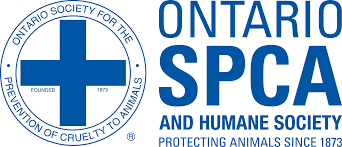THUNDER BAY — The Ontario Animal Care Review Board rejected a Thunder Bay family's bid to recover a number of exotic animals that were seized from their home in December 2019.
In a decision issued in April, it also ordered the family to pay $27,000 for the cost of caring for the animals after they were removed by the OSPCA.
The case dates back to March 2019 when two OSPCA inspectors first visited the home after receiving anonymous complaints that animals weren't being properly cared for.
The inspectors found hundreds of animals in unsanitary conditions, observing the home to be "cluttered with animal excrement throughout, and many of the animals were found without any food and water."
Some of the animals were removed, and orders were issued to improve the conditions.
After a follow-up inspection in December, the OSPCA agents issued a removal order for five tortoises, three birds, four lizards and three dogs due to non-compliance with orders.
The inspectors testified that the tortoises were roaming in the house with no available food or water. A veterinarian who examined them said they had "very thin body conditions, poor skin, very poor shell quality, upper respiratory tract infections, diarrhea, conjunctivitis, foot sores, and parasites."
The owners said the tortoises received most of their drinking water at night when they were bathed.
The OSPCA agents said two of the lizards had no available food or water on the day of the inspection, while one couldn't access its water, and the fourth had dirty water and an empty food dish.
They also testified that three of the animals were living without proper lighting or heat.
A fourth lizard was found dead in its enclosure, without the owners being aware it was deceased.
The animal review board member who heard the case was dissatisfied with the owners' explanation, and determined that the other lizards "were in distress" on the day they were seized.
She also ruled that the three birds seized by the OSPCA the same day were in distress.
An African Grey Parrot was found in a dirty cage without available water or appropriate food. A vet who examined it later said its body was very thin, with multiple primary feathers missing from the wings, tattered tail features, and dry flaky skin.
"Extremely poor husbandry" had caused the unhealthy condition, the vet determined.
Although the inspectors also seized two budgies after finding them without available water or adequate food, a subsequent veterinary examination showed their body conditions were generally healthy.
The animal review board said "the evidence that the birds were not provided with fresh water is uncontested," and again was not satisfied with the owners' explanation.
Two of the dogs that were seized were euthanized days later, one because of poor health, the other because it was aggressive and a risk to public safety.
The third dog, belonging to a family member, was found with no available food or water and some health issues.
While the review board member said it was uncontested"that none of the dogs had available fresh water on the day of the inspection, and that they were in distress, she believed the owner's evidence that she had only planned to leave the third dog confined for a short period.
The board ultimately ruled that this dog and the two budgies should be returned to the family, saying it "no longer has any concern about these animals' welfare and wellbeing if returned. The Board is satisfied," it said, "that these animals could be properly cared for by [the family] based on their established animal care plan and with additional conditions imposed by the Board."
However, it decided against requiring the return of the parrot, the tortoises and the lizards.
"Returning the exotic animals would be inappropriate in the circumstances. For several months [the family] were under orders to maintain a certain standard of care...and although they made some improvements, they ultimately could not maintain the appropriate standard of care," the board member said.
She ordered the family to pay $3,300 for the cost of caring for the dog while it was seized, and $23,700 for the cost of caring for the remaining seized animals.
